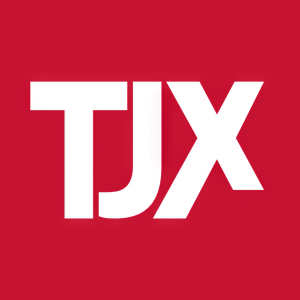Welcome to our dedicated page for Tjx Companies news (Ticker: TJX), a resource for investors and traders seeking the latest updates and insights on Tjx Companies stock.
TJX Companies, Inc. (NYSE: TJX) operates one of the world's largest off-price retail portfolios, including T.J. Maxx, Marshalls, and HomeGoods. This news hub provides investors and industry professionals with essential updates on corporate developments, financial performance, and strategic initiatives driving the company's unique treasure-hunt shopping model.
Access curated press releases and market analyses covering TJX's opportunistic inventory sourcing, store expansions, and consumer trends impacting the off-price sector. Our collection features official earnings announcements, leadership updates, and operational milestones that shape the company's position in value-focused retail.
Key content includes quarterly financial disclosures, sustainability initiatives, and partnership developments. Regular updates reflect TJX's approach to global vendor relationships and adaptive merchandising strategies that maintain its competitive edge in fluctuating markets.
Bookmark this page for streamlined access to verified TJX news, enabling informed analysis of the company's performance in the evolving retail landscape. Check back frequently for the latest developments affecting this off-price industry leader.
TJX Companies (NYSE: TJX) has announced plans to release its third quarter Fiscal 2025 results on November 20, 2024, before 9:30 a.m. ET. CEO Ernie Herrman will host a conference call at 11:00 a.m. ET to discuss results and business trends. The call will be available via webcast at TJX.com, with a replay accessible through November 26.
TJX, a Fortune 100 company, is the leading off-price retailer of apparel and home fashions globally, operating over 5,000 stores across nine countries under brands including TJ Maxx, Marshalls, HomeGoods, Winners, and TK Maxx. The company offers brand-name merchandise at 20% to 60% below regular retail prices.
Marshalls (NYSE: TJX) announces The Good Stuff Accelerator Program, an initiative to help women access resources for unlocking their potential. This program, open for applications, will select 40 women to receive expert-led workshops, peer coaching, educational tools, and a $5,000 grant. The initiative builds on the Marshalls Good Stuff Social Club, with the next event on October 5th in Chicago, featuring Priyanka Chopra Jonas as keynote speaker.
The program addresses findings that only half of women surveyed are satisfied with their current lives, and a third don't know where to start improving. Marshalls partners with Luminary to provide participants with a year-long membership, offering access to resources, events, and networking opportunities. The brand has also donated $400,000 to nonprofit partners supporting women and girls.
The TJX Companies, Inc. (NYSE: TJX), a leading off-price retailer of apparel and home fashions, has declared a quarterly dividend of $0.375 per share on its common stock. The dividend is payable on December 5, 2024, to shareholders of record as of November 14, 2024. TJX operates over 5,000 stores across nine countries, including brands like TJ Maxx, Marshalls, and HomeGoods. The company's mission is to deliver great value to customers by offering quality, brand-name merchandise at 20% to 60% below full-price retailers' regular prices. TJX also maintains e-commerce sites for several of its brands and focuses on corporate responsibility efforts.
The TJX Companies, Inc. reported strong Q2 FY25 results, exceeding expectations. Highlights include:
- Comparable store sales increased 4%, driven by higher customer transactions
- Pretax profit margin rose to 10.9%, up 0.5 percentage points year-over-year
- Diluted EPS reached $.96, a 13% increase from last year
- Net sales grew 6% to $13.5 billion
- Returned $982 million to shareholders through repurchases and dividends
- Opened 5,000th store worldwide
TJX raised its FY25 outlook for pretax profit margin and EPS. The company also announced a $360 million investment for a 35% stake in Brands For Less, expanding its presence in the Middle East.
The TJX Companies (NYSE: TJX) has announced plans to release its second quarter Fiscal 2025 sales and earnings results on Wednesday, August 21, 2024, before 9:30 a.m. ET. CEO Ernie Herrman will hold a conference call at 11:00 a.m. ET to discuss the results, operations, and business trends. A real-time webcast and replay will be available on TJX.com.
TJX, a Fortune 100 company, is the leading off-price retailer of apparel and home fashions globally. It operates over 4,900 stores across nine countries under various brands, including TJ Maxx, Marshalls, and HomeGoods. The company offers brand-name merchandise at 20% to 60% below regular prices of full-price retailers. TJX also operates e-commerce sites in the U.S. and Europe.
KODE Labs has been selected by The TJX Companies (NYSE: TJX), a leading global off-price retailer, to provide an Energy Management Information System (EMIS) platform. TJX chose KODE Labs after a thorough review process, for its technology's ability to integrate store systems into a centralized platform, optimize energy usage, manage systems remotely, and automate maintenance tasks. Adam Schleyer, from TJX, highlighted KODE Labs' innovation and scalability as key reasons for the selection. Etrit Demaj, Co-Founder of KODE Labs, expressed excitement about the collaboration, emphasizing the potential for significant results. The initiative aims to enhance operational efficiency and customer experience.
Marshalls (NYSE: TJX) has announced nationwide programming under the Marshalls Good Stuff Social Club, starting on June 8 in Atlanta, aimed at helping women access resources for personal and professional growth. The initiative, in partnership with Priyanka Chopra Jonas, includes sessions on financial stability, self-worth, community building, and styling. Research revealed that 2 in 3 women feel they aren't living their ideal life, with 36% lacking necessary resources. In addition to live events, digital tools will be available. Marshalls will donate $400,000 to organizations supporting women and girls.
The TJX Companies, a leading off-price apparel and home fashions retailer, announced a joint venture with Grupo Axo in Mexico. TJX will own 49% and Axo 51% of the venture, which includes over 200 off-price stores under Promoda, Reduced, and Urban Store banners. The transaction, expected to close later this year, awaits antitrust clearance and other conditions. Financial terms will be disclosed post-closing.
CEO Ernie Herrman expressed excitement about expanding into Mexico, leveraging TJX's international retail experience and Axo's local market strength. This venture won't significantly impact TJX's current fiscal sales, profit, or earnings guidance. BofA Securities and Ropes & Gray LLP are advising on the transaction.
The TJX Companies, a leading off-price retailer, announced a quarterly dividend of $.375 per share, payable on September 5, 2024, to shareholders on record as of August 15, 2024. TJX operates over 4,900 stores in nine countries, including TJ Maxx, Marshalls, and HomeGoods in the U.S. The company focuses on offering quality, branded merchandise at 20% to 60% below regular prices. TJX also emphasizes corporate responsibility and supports various community and environmental causes. Further investor information is available on TJX's website.
The TJX Companies reported strong Q1 FY25 results, showcasing a 6% increase in net sales to $12.5 billion and a 3% climb in comparable store sales, driven solely by higher customer transactions.
The pretax profit margin rose to 11.1%, up 0.8 percentage points from last year, and diluted EPS surged 22% to $0.93. The company also returned $886 million to shareholders through repurchases and dividends.
For FY25, TJX has raised its profit margin and EPS guidance and plans to expand further with the opening of 18 new stores, totaling 4,972 locations. Despite a slight increase in SG&A costs, overall financial performance and outlook remain positive.


